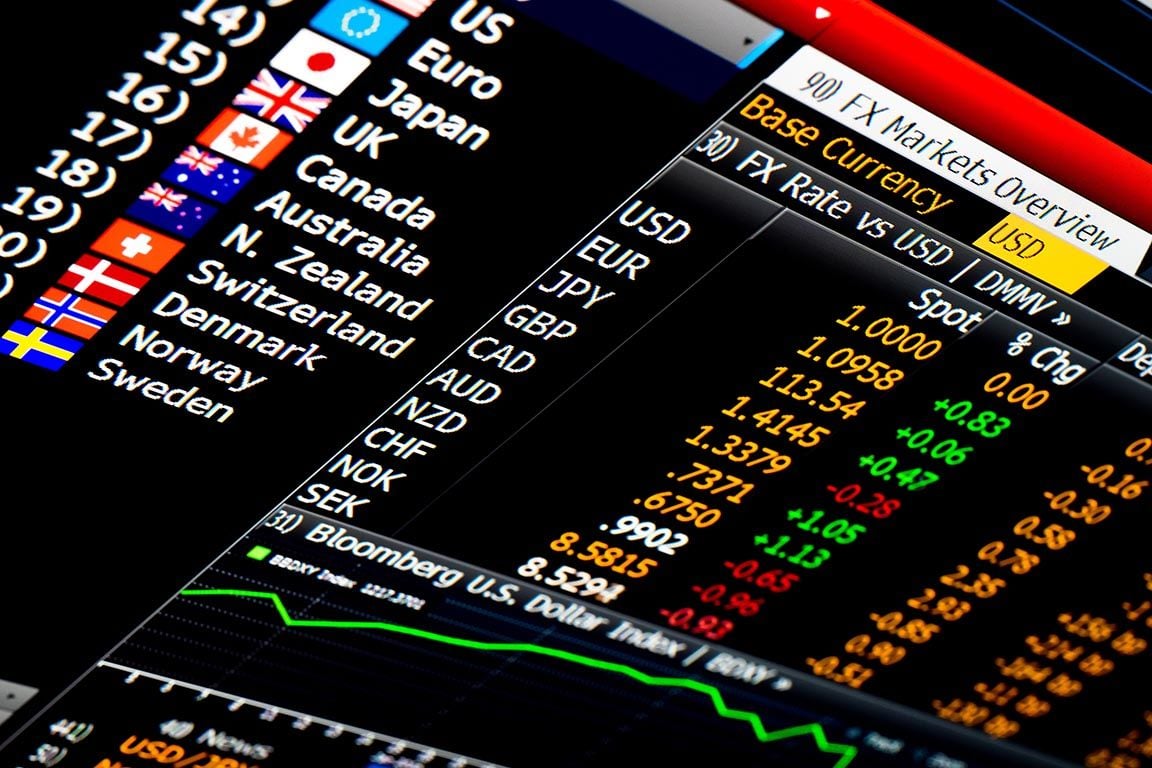Swiss Franc Rises on Safe-haven Flows but the SNB Could be About to Enter the Fray
- CHF rising to uncomfortably high levels for SNB.
- Risk of central bank intervention to weaken Franc.
- Could usher in a new phase of intervention by SNB.

© OkFoto.it, Adobe Images
The Swiss Franc has risen to what are likely to be uncomfortably high levels for the Swiss National Bank (SNB) amidst a period of appreciation following the Turkish currency and debt crisis and recent comments from the bank suggest it this is already having an effect on its monetary policy.
At the least, the SNB is seen retaining an ultra-accommodative approach to monetary policy by keeping negative interest rates in place as a buffer against the strengthening Franc, although analysts say it could even intervene in the currency market if the EUR/CHF rate falls to within a 1.10 to 1.13 range. It traded at 1.1287 Wednesday.
"The SNB has vast FX reserves denominated in "volatile foreign currency" says George Dorgan, a central banking expert and publisher of SNBCHF.org.
While this could, theoretically, have a serious knock-on effect on the stability of the central bank and Swiss economy, most of the reserves are in stable major currencies such as the Dollar (37%), which is rising, and the Euro (38%). The SNB also has a $96bn holding of US stocks, with a high proportion of this concentrated in the technology sector.
Franc in the Buyzone
The EUR/CHF rate may have formed a bearish candlestick in what some traders call the sell zone, which is the space between the 10 and 20 day moving averages - but the warning from SNB officials that it is prepared to step in and devalue the Franc suggests a rebound in the exchange rate is in the cards rather than further weakness.

Above: EUR/CHF rate shown at hourly intervals.
A similar set-up in the Pound-to-Franc pair has already led to a fall in the exchange rate, which has moved down from highs of 1.2698 on Wednesday to a spot rate of 1.2647 - but again analysts are sceptical of continued weakness versus the Franc due to the rhetoric of the SNB.

Above: GBP/CHF rate shown at hourly intervals.
The Franc has risen as a result of safe-haven demand arising as a result of the Turkish currency and debt crisis. When investors move out of risk assets, they frequently rotate into safe-havens such as the Swiss Franc during times of crisis.
SNB to Enter the Fray?
The SNB has a reputation for frequently intervening in currency markets to weaken the Franc, but more recently it appears to have allowed the currency free reign according to site deposit data, which tracks changes in its FX reserves.
The neutral stance could be about to change, particularly if commentary from SNB vice chairman Fritz Zurbruegg on Wednesday is anything to go by.
Zurbruegg says the recent Franc rise means the SNB has to retain its ultra-loose monetary stance as a buffer against the currency's appreciation. This stance prevails despite record high employment, a strong economy and rising inflation.
"The issue for the SNB is that inflation is actually improving at a quicker pace than that of the Eurozone, but is still unlikely to change things for the time being as the Swissie remained resilient over the last few weeks," says Justin Low, analyst at liveforex.
An increasing number of analysts say there is a risk the SNB will actually intervene to weaken the Franc by selling it against other currencies.
"We do think that we could be approaching levels that could attract the attention of the SNB,” says Ned Rumpeltin, European head of foreign exchange strategy at TD Securities, in report by Bloomberg News.
Rumpeltin says the SNB would be most likely to act if the EUR/CHF rate were to fall to 1.12. Others say it will be more patient, with Thu Lan Nguyen at Commerzbank suggesting a EUR/CHF rate of 1.10 would be necessary before the bank is compelled to act.
The exchange rate may already be at levels where the SNB is intervening, according to Viraj Patel, an FX strategist at ING Group, who also cites the 1.12 to 1.13 range as the limit of the SNB's pain threshold.
Multiple interventions since the financial crisis mean the SNB has amassed much larger-than-average foreign exchange reserves which have increased from 28% of GDP in 2001 to 102% in 2016.

The equally impressive rise in the Dollar is likely to underpin the SNB's balance sheet given 37% of its reserves are in US Dollars. Indeed the SNB's interim report for June 2018 showed the Bank made a profit of over CHF 5bn from its vast currency pile. Thus, further interventions may not prove a financial stability risk for the Bank at all.
Advertisement
Get up to 5% more foreign exchange by using a specialist provider to get closer to the real market rate and avoid the gaping spreads charged by your bank when providing currency. Learn more here
